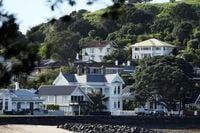New Zealand is making waves in the global property market with a bold policy shift announced on September 1, 2025. The government, led by Prime Minister Christopher Luxon, revealed it will ease the country’s long-standing ban on foreign home ownership for a select group of wealthy overseas investors. The move, set to take effect at the end of the year when reforms to the Overseas Investment Act are enacted, is designed to attract fresh capital and stimulate an economy that has struggled through recent recessionary months.
At the heart of this policy change is the so-called "golden visa" or Active Investor Plus Visa. Holders of this visa, who commit at least NZ$5 million (about $3 million USD) to New Zealand businesses over three years, or NZ$10 million over five years in less risky investments, will now be eligible to purchase or build a single residential property worth at least NZ$5 million. It’s a targeted exemption, not a full reversal of the 2018 foreign buyer ban, and it comes with strict limits: only one property per investor, and only at the luxury end of the market.
Prime Minister Luxon described the policy as a careful balancing act. “This change navigates a path between those who do not want foreign ownership opened up, and the desire to attract high net worth investors by deepening their connection to our country to help grow the economy,” he said, according to IMI Daily. Luxon emphasized that the exemption applies to fewer than 1% of New Zealand’s housing stock—about 10,000 homes nationwide, with roughly 80% located in Auckland and 10% in the scenic, ski-friendly Queenstown area, a long-standing favorite among global elites.
The government’s rationale is clear: with the economy contracting in late 2024 and early 2025, and with population outflows to Australia adding pressure, New Zealand is seeking ways to boost foreign investment. Officials estimate that the 308 applications received for the Active Investor Plus Visa since its April relaunch represent about 1,000 individuals and a potential minimum investment of NZ$1.9 billion. Nearly 40% of these applicants hail from the United States, with Chinese citizens forming the second-largest group.
But is this policy a game changer? The answer depends on whom you ask. James Hall, CEO of ANZ Migrate, sees the move as correcting “a fundamental flaw in the current system,” telling IMI Daily that “it seemed absurd that investors placing NZ$5-10 million into our economy couldn’t buy a family home.” Hall argues the change targets only a sliver of the market—properties above NZ$5 million, which make up less than 1% of all homes and see about 350 sales per year. “This NZ$5 million threshold targets high-end luxury properties that won’t disrupt the main housing market while encouraging a connection to the country through home ownership,” he said.
Others are more circumspect. Philippe May, CEO of EC Holdings, notes that New Zealand faces stiff competition for global capital. “How many of them will now choose New Zealand over Australia or Canada? There will be an uptick in New Zealand for sure, but not a shift,” he told IMI Daily. May points out that New Zealand’s unique location and climate have always been a draw for certain investors—those who find Australia too hot, Uruguay too far, Monaco too cramped, and the United States overtaxed. However, he cautions that the change is “no game changer,” especially compared to countries offering direct citizenship.
The policy’s origins trace back to 2018, when then-Prime Minister Jacinda Ardern’s government imposed the foreign buyer ban amid a heated debate over housing affordability. At the time, foreign buyers accounted for just 2% to 3.5% of property sales nationally, though in Auckland the figure soared to 22%. The ban was widely seen as a response to public anxiety that overseas investors were pricing out New Zealanders, particularly first-time buyers. In practice, however, exceptions existed for Australians and Singaporeans under trade agreements, and anecdotal tales of "doomsday bunkers" in Queenstown stoked further controversy.
Critics of the new exemption warn that the government’s focus on attracting wealthy foreigners does little to address the ongoing struggles of ordinary New Zealanders. “Many Kiwis are already struggling to buy a home, and he has just made it worse,” opposition Labour housing spokesperson Kieran McAnulty told the Associated Press. “Homelessness is up, unemployment is up, and people cannot afford the basics at the supermarket.” These concerns are not unfounded: the average home in New Zealand cost NZ$767,250 in July 2025, and Auckland’s average was NZ$975,000, according to the Real Estate Institute of New Zealand.
Yet supporters argue that the policy is both limited in scope and necessary for economic recovery. Jeremy Savory, CEO of Savory & Partners, points out that “while New Zealand opens its doors to wealthy investors, the UK is talking about changing stamp duty, wealth taxes, inheritance taxes, and driving away wealthy foreigners.” He sees the move as part of a global cycle, with countries alternately opening and closing to foreign investment in response to shifting economic winds.
For the government, the hope is that the new policy will generate jobs and foster deeper engagement from global investors, moving beyond what Hall describes as “insurance-oriented residency patterns.” He believes that “when you can establish proper roots through home ownership, New Zealand starts feeling less like an exit strategy and more like a genuine lifestyle choice.”
Still, some experts doubt the change will dramatically alter New Zealand’s position in the global market. May argues that “the effect on countries offering direct citizenship is zero,” and that New Zealand’s reputation as a destination for high-net-worth individuals will improve only incrementally. “You cannot just lift such a ban and expect everything to be back to normal. Your reputation is affected,” he said.
For now, the policy stands as a carefully measured experiment. Luxon insists it “will help attract more of those who want to contribute to the community and country.” By limiting eligibility to a handful of luxury homes and requiring significant business investment, the government hopes to thread the needle—providing a shot in the arm for the economy while keeping the dream of home ownership alive for New Zealanders.
As the reforms await their final passage into law later this year, all eyes will be on whether this small opening in New Zealand’s real estate market brings the promised economic boost—or simply stirs up more debate about who gets to call Aotearoa home.







